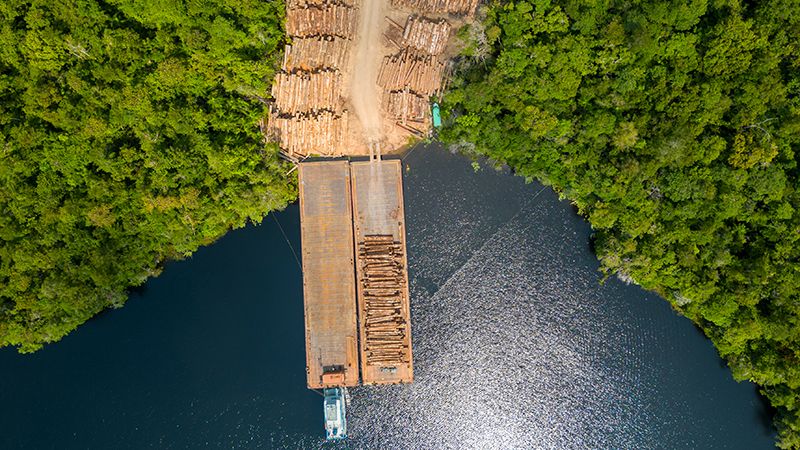More than 130 businesses and financial institutions, including Amundi, Legal & General, Schroders and Triodos Bank, have released a statement calling on governments to strengthen policies to halt and reverse nature loss this decade.
With less than 100 days until the UN Biodiversity COP16, the group of organisations have urged governments to exhibit “immediate leadership” and to “strengthen – not weaken” their policies, incentives and legislation, including the full implementation of the Kunming-Montreal Global Biodiversity Framework.
The Global Biodiversity Framework, the statement goes on to say, is “the blueprint to reset our relationship with the natural world”. Signatories argued it is essential to tackle the climate crisis and reduce inequality, and the business and finance community “must contribute to its rapid implementation”.
Businesses “can unlock significant opportunities” by addressing nature loss, according to the statement, with signatories committed “to transforming our operations, value chains and entire sectors to contribute to a thriving economy that depends on healthy ecosystems”.
The statement also urged governments to adopt nature policies that:
- Make sure businesses and financial actors protect nature and restore degraded ecosystems
- Ensure sustainable resource use and management to reduce negative environmental impacts
- Value and embed nature in decision-making and disclosure
- Align all financial flows to transition to a nature-positive, net-zero and equitable economy
- Adopt and strengthen ambitious global agreements to address key nature loss challenges
“Risks associated with biodiversity loss have significant macroeconomic and financial implications but the management of these risks remains limited,” Jean-Jacques Barbéris, head of institutional and corporate division and ESG at Amundi, said.
“There is strong support by the financial community to address biodiversity loss. However, as I declared at COP 15, appropriate regulatory measures and financial incentives are needed to achieve these objectives to create clear guidelines for economic players and effectively mobilise financial resources.”
Likewise, Sarah Woodfield, active ownership manager at Schroders, added that as a global investment manager, Schroders has “a responsibility to mitigate nature related risks in the portfolios we manage for our clients”.
“Following the landmark agreement of the Kunming-Montreal Biodiversity Framework at COP15 it is now critical that government’s turn aspiration into action to reverse the drivers of nature loss. Transparency and disclosure from investee companies on their risks, impacts and dependencies on nature is critical to achieving this. Clarity on governments’ goals and targets will also facilitate the flow of capital to deliver a transition to a nature positive economy. We hope the focus on resource mobilisation at COP16 will catalyse company and investor action on addressing nature loss.”
From a corporate perspective, Laurent Freixe, chief executive officer of Latin America for Nestlé – who also signed the statement – commented: “Colombia is home to 10% of the planet’s biodiversity. Nature loss is a critical risk we cannot ignore, and the success of our business relies on a healthy natural world.
“At Nestlé, we have set ambitious targets to ensure 50% of our key ingredients are sourced from farmers adopting regenerative agriculture practices by 2030. We strongly support the call for governments and the private sectors to help halt and start reversing nature loss by 2030.”
Business for Nature recommendations
In addition to the statement, the Business for Nature coalition has developed 20 specific policy recommendations for how the level of ambition businesses are calling for could be implemented by governments through the Global Biodiversity Framework.
Developed with input from nearly 150 partners and companies, the policy recommendations cover areas such as banning conversion in specific key protected areas, as well as the transition to regenerative farming models and the adoption of a global plastics treaty.
Research shows that over half (55%) of the world’s gross domestic product is moderately or highly dependent on nature – the equivalent of $58trn. Despite this, current economic and business practices are driving nature loss, putting planetary systems under ever-increasing pressure and creating significant risks for our economies and livelihoods.
Eva Zabey, CEO of Business for Nature, added: “Businesses are uniting and calling on governments to provide the regulatory certainty they need to transform their operations and supply chains. Our policy asks show governments how they can make this a reality. Only through collective effort will we be able to drive the global systemic change needed for a nature-positive, net zero and equitable economy.”








